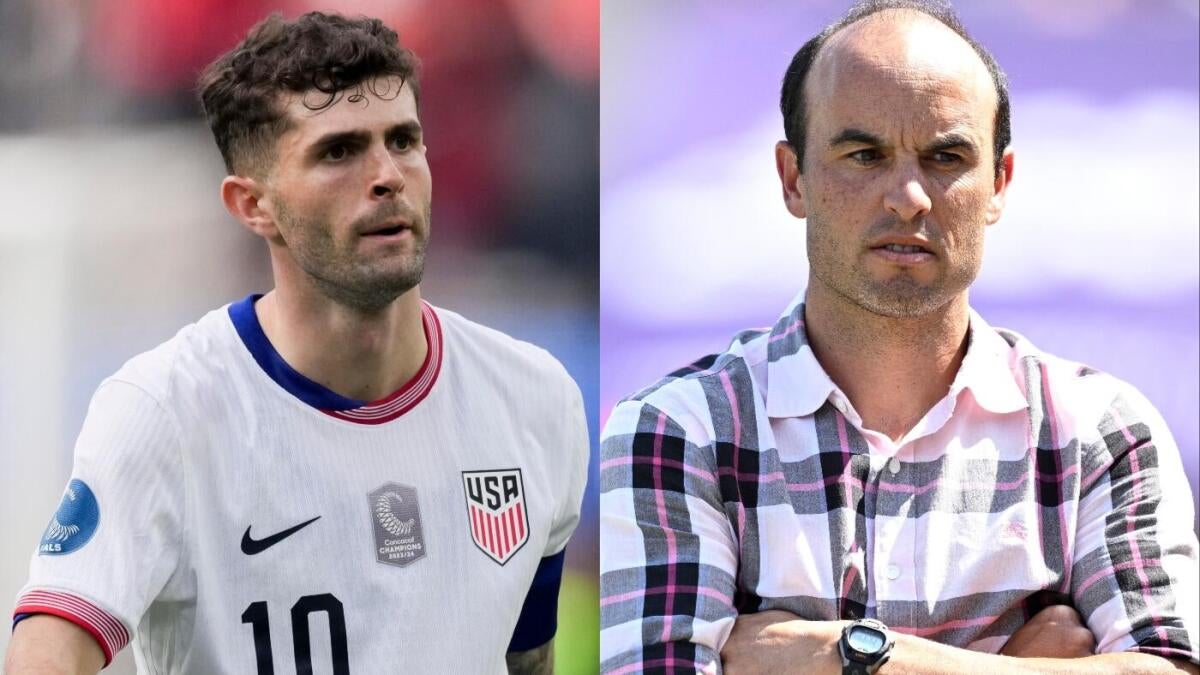Unraveling the USMNT Saga: The Pulisic-Donovan Feud Through an AI Lens
Artificial intelligence has emerged not just as a technological tool but as a powerful amplifier of narratives, controversies, and public discourse. The escalating tension between Christian Pulisic and Landon Donovan within the U.S. Men’s National Team (USMNT) spotlighted a modern dynamic where AI technology intersects with sports culture, player welfare debates, and media engagement. Exploring this story through the prism of AI reveals how digital tools reshape conversations and influence perceptions.
AI’s Role in Amplifying the Conflict
The dispute between Pulisic and Donovan might have remained a private disagreement framed by personal opinions and interviews. Instead, it spiraled into a public spectacle partly fueled by the strategic use of AI. Mark Pulisic, Christian’s father, leveraged AI tools like ChatGPT to highlight contradictions in Donovan’s past behavior, especially referencing Donovan’s own sabbatical from the national team.
This AI-assisted fact-checking brought an unprecedented level of precision and speed to public rebuttals. It turned what might have been a subjective claim into an evidence-backed counterargument accessible to a broad audience almost instantly. This not only intensified the scrutiny on Donovan’s stance but also raised the bar for accountability in sports debates. The use of AI in this way signals a broader shift: digital technology is empowering stakeholders beyond traditional media gatekeepers to participate actively and factually in shaping narratives.
Redefining Player Narratives with AI-Enhanced Communication
Beyond fact-checking, AI tools enable more nuanced storytelling and strategic communication for athletes and their inner circles. Instead of vague or generalized public statements, the Pulisic camp’s adoption of AI-assisted content generation ensured their perspectives were clearly articulated and backed by data. This approach helps counter oversimplifications, such as Donovan’s framing of Pulisic’s rest as a lack of patriotism, by providing context about player workload, mental health concerns, and past precedents.
Such AI-enhanced narratives promote a more empathetic understanding of athlete decision-making, highlighting the complex balance between physical demands and national expectations. For fans and analysts, this offers a more informed lens through which to view athlete choices, challenging outdated notions about sacrifice and loyalty in sports.
The Broader Implications for Sports Media and Athlete Advocacy
The Pulisic-Donovan episode exemplifies a wider trend where AI reshapes sports journalism and athlete advocacy. Journalists, commentators, and stakeholders now contend with instant fact verification and more sophisticated messaging coming directly from athletes or their representatives. This democratization of information promotes transparency but also complicates traditional media roles.
Furthermore, AI’s ability to analyze vast datasets about player performance, injury risks, and mental health trends could gradually influence team management and public expectations. In this case, AI contributed indirectly by spotlighting Donovan’s inconsistency, perhaps prompting fans and federations to reconsider rigid attitudes toward player rest and career longevity.
Balancing Digital Power With Human Nuance
While AI empowers clearer, data-driven debates, it also demands caution. Algorithms and generated content can oversimplify or miss emotional subtleties vital in sports culture. The Pulisic family’s skilled use of AI tools balanced factual precision with a narrative that underscored personal and familial stakes—something raw data alone cannot convey.
Effective use of AI in such contexts requires blending technology with genuine human empathy and cultural awareness. The controversy’s resonance owes as much to the emotional realities of player wellness and legacy as to the factual AI-enhanced rebuttals.
Conclusion: AI as a Catalyst in the Evolution of Sports Dialogue
The Christian Pulisic–Landon Donovan feud highlights AI’s emerging role as both a tool and a protagonist in sports discourse. By fortifying arguments with rapid, verifiable information and enabling richer communication channels, AI disrupts conventions of narrative control and public debate. It challenges long-held ideologies around player loyalty and health by illuminating the complexities athletes face in modern professional sports.
As USMNT moves forward, integrating AI with human storytelling and ethical awareness could foster a more balanced and compassionate soccer culture. This episode serves as a case study on how digital innovation intersects with tradition, prompting sports communities to rethink not only individual conflicts but broader cultural shifts. The future of athlete advocacy, media relations, and fan engagement will increasingly hinge on this delicate yet powerful interplay between machine and humanity.

